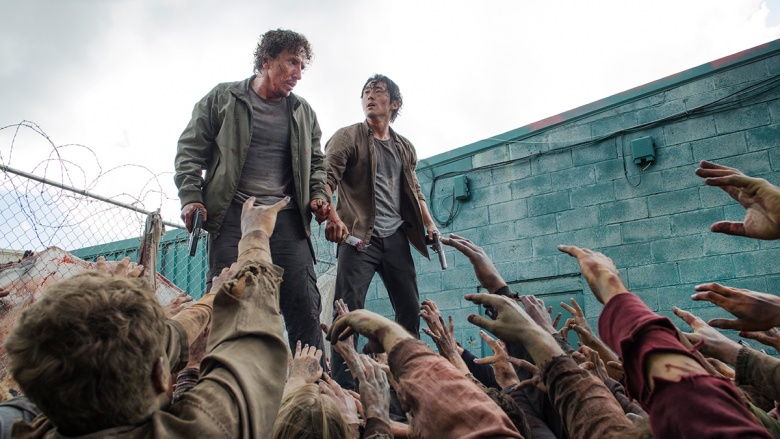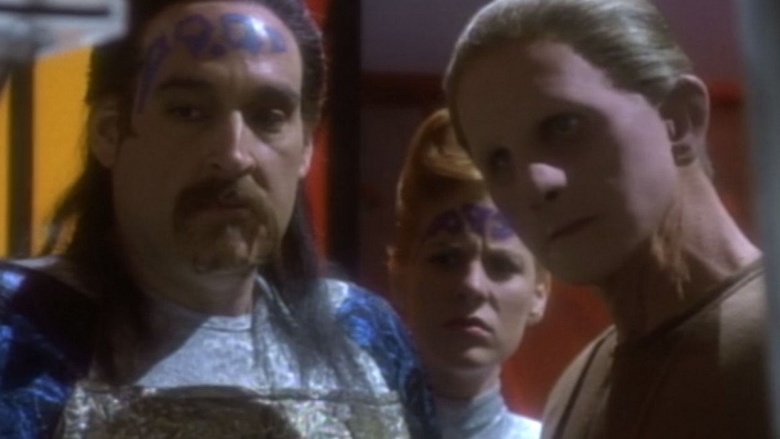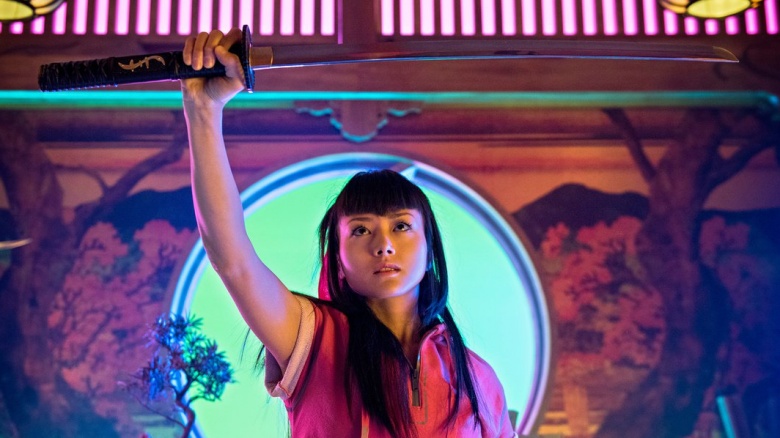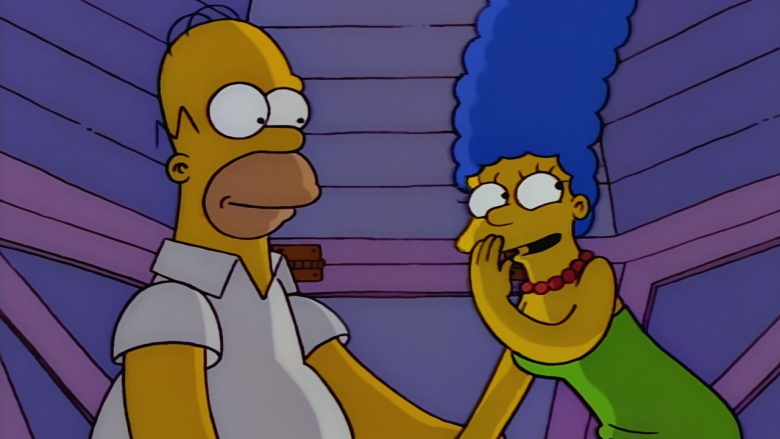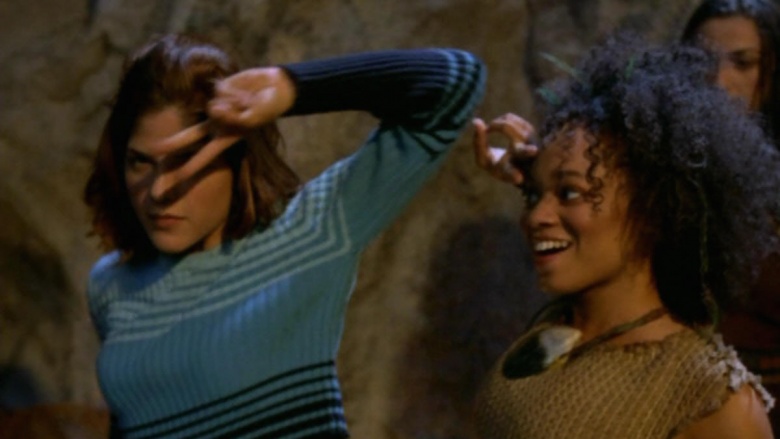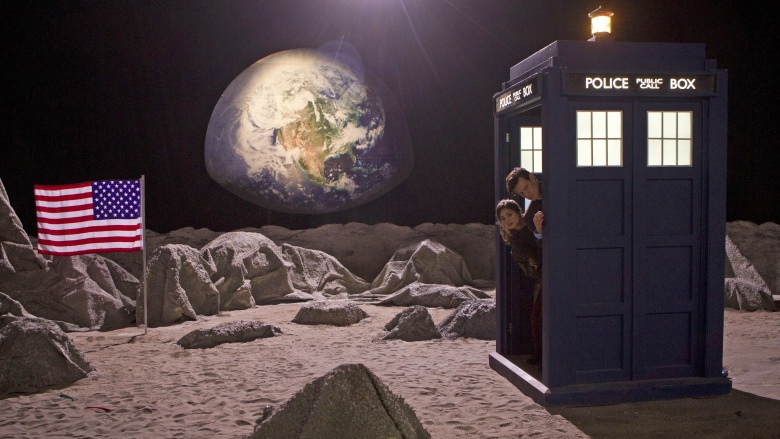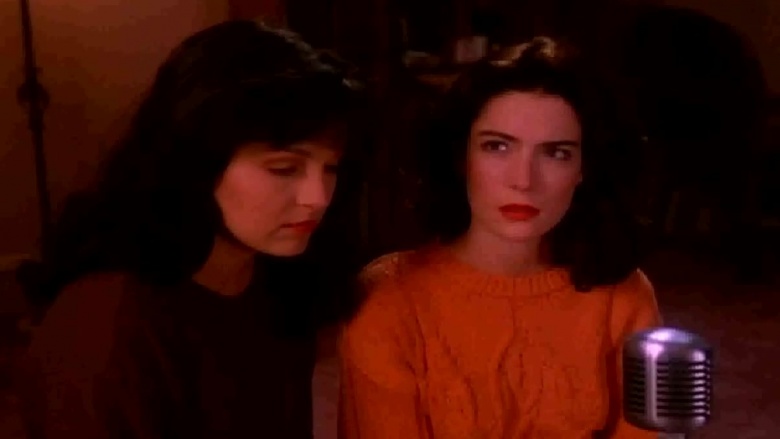TV Shows Almost Ruined By One Episode
TV, you break our hearts. We give you hours of our time, and you promise us a level of consistent bliss that real life could never offer...and then you stab us right in the back. In almost every great TV show's run, you'll find at least one disastrously off-key episode—some bad enough to forever change your perception of the series. Here are a few episodes that were so bad, only the show's most loyal viewers remained.
The Walking Dead - Thank You
The Walking Dead has enough suspense and desperate relationship dynamics to keep itself going indefinitely—which is just one reason why the season six episode "Thank You," which prominently featured the fake-out death of mainstay character Glenn Rhee, didn't need to happen like it did. Glenn's non-death marked the first time the showrunners pulled a deceptive camera trick. Viewers quickly saw through the ruse, and they were not quick to forgive. The Walking Dead changed from an uncomplicated post-apocalyptic drama to a show that was comfortable lying to the audience, and many viewers found it hard to see the show the same way. Was anyone really dead?
Star Trek: Deep Space Nine - Move Along Home
It's a rite of passage for every Star Trek series to have one astoundingly awful episode. Original Trek had Kirk's overly-careful fight with the Gorn, and Next Generation had their visit to the accidentally racist planet. One episode that isn't mentioned much in this context comes from Deep Space Nine, and it involves the most cringey musical hopscotch scene you've ever witnessed. In "Move Along Home," a Yanni lookalike arrives on the space station, and some of the series' main crew are transported into a board game...which essentially a locked-room mystery designed exclusively for morons. Watching Captain Sisko and Kira sing and play hopscotch to solve a puzzle is a low point in an otherwise excellent series, and it took a few episodes to shake off the shame.
Heroes Reborn - Brave New World
Given the history of Heroes' sad sputter to the finish line a decade prior, one might hope that Heroes Reborn would have learned from previous mistakes. Unfortunately, the new series went off the rails during its very first episode. After an initially promising showing, and inviting viewers into the intrigue of whatever happened offscreen during the intervening ten years, the whole thing collapses when Katana Girl is introduced. While time travel, mind control, and teleportation powers are tolerable in the belief-stretching Heroes-verse, it's just never clearly explained how a girl can move back and forth between a video game and reality. Even stranger, the show's effects department seemed to believe that video game graphics topped out at Super Mario World, leaving us watching a low-poly mess that alienated a million viewers.
The Simpsons - Natural Born Kissers
Critics often debate the exact point when The Simpsons began to crumble, though Slate, The New York Post, and Macleans all seem to agree that it was "somewhere during the ninth and tenth seasons." It's perhaps fair to choose the ninth season finale as the definitive point where The Simpsons was no longer the series we knew and loved. The off-key, overtly sexual theme of the episode could be attributed to the fact that it was writer Matt Selman's first crack at the show, but quality control had already shown signs of slipping, and viewers started tuning out. By the time Season 10 premiered, 1.6 million viewers had left, making it the lowest-viewed premiere until Season 25.
Xena: Warrior Princess - Lifeblood
There are hundreds of Xena moments that test the limits of good taste, but the show's campiness has always been one of its more forgivable traits. Still, viewers will never forget the laziness of season five's "Lifeblood." In an attempt to build an unstoppable trifecta of ancient adventures, Hercules and Xena producer Rob Tapert created Amazon High, a two-hour pilot about a modern girl who's transported back to the time of the original Amazons. The network wasn't into it, so Tapert cut the footage down to about 45 nonsensical minutes and crammed it into an episode of Xena instead. Despite featuring sci-fi royalty like Selma Blair (Hellboy), Karl Urban (Star Trek, Almost Human), and Claudia Black (Farscape), the sliced-and-diced episode just confused viewers. Watching the episode was a labor that even Hercules couldn't have handled.
Doctor Who - Nightmare in Silver
You can easily find a few thousand blog entries with titles like "Why I Quit Doctor Who," or "The Doctor Is Out," or similar statements of disenchantment with the venerable BBC series. They all have their own ideas of where Doctor Who jumped the shark, but for us, the breaking point is the seventh "Nu-Who" season episode "Nightmare in Silver," in which the Doctor brings some kids to an abandoned amusement park—but instead of using his time machine to bring them back to a time when it wasn't a dangerous wasteland, they hang out. The entire episode rattles the faith of even the most dedicated Whovians with a series of gaping plot holes. Radio Times called it "execrable," "a flop," and "underwhelming," which are polite British code words for "you've just destroyed everything good in this world."
Twin Peaks - The Man Behind the Glass
David Lynch is allowed a wider weirdness berth than almost any other director, but the second season of his cult classic Twin Peaks marks the spot where fans started to lose the enchantment. If you've watched up to the third episode of the second season, you've probably already realized that the whole show is Lynch's twisted take on 1980s daytime soaps, but "The Man Behind the Glass" was truly the breaking point. For no reason and with no precedent, resident bad boy James decides to bust out a guitar and sing a sleepy, ultra-falsetto ballad to a couple of girls. They join him in an impromptu singalong, along with other invisible instruments. It's the least believable part of a show that actively incorporated journeys into alternate dimensions with funky carpets.

